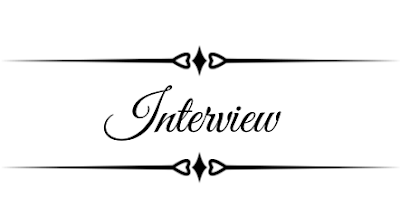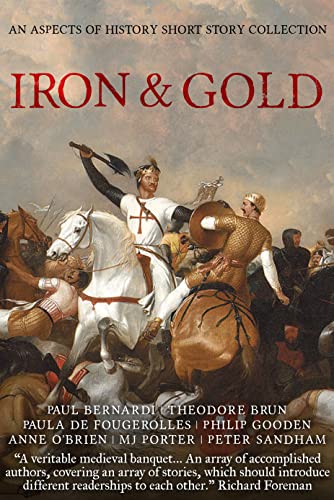Philip Gooden
Anne O’Brien
MJ Porter
Peter Sandham
Beware the Storm, by Paul Bernardi
The Tale of Fredegar’s Bane, by Theodore Brun
The Eyrie, by Paula de Fougerolles
The Miracle, by Philip Gooden
The Quality of Mercy, by Anne O’Brien
To be a King, by MJ Porter
Another Blackbird Field, by Peter Sandham
Mary Anne: You have recently been asked to help judge the new Aspects of History Unpublished Historical Novel Award. Details about the award, which provides a publishing contract and cash prize, can be found here. It's a great opportunity for unpublished and self-published novelists.
Can you tell us a little more about what you look for in a good historical novel? Do you have any favourite authors you return to?
Anne: For me the story line is of crucial importance. The history and historical detail must of course be accurate but not so heavily detailed that it overburdens the impact of the tale that is being told. Historical descriptions are needed to set the scene and give an ambiance of the period, but it is all a matter of balance.
The development of characters is vital. This is what brings a novel to life. I need to be able to rejoice with the protagonists and suffer with them, which I am unable to do if I do not know or understand them and their motives. I need not necessarily have to like them - although it helps unless they are the villains of the piece and then hatred is very acceptable - but I must empathise with them and feel compassion with the choices they make. I particularly enjoy conversation to give the characters and events depth. Far better to see a happening through the eyes of those participating, through the words they use, rather than through a mere description.
The pace of the tale is also important, to give it that page turning quality which keeps the reader engaged. Emotion, drama, action, involvement, they must draw me into the story; also the variety of human involvement to keep the interest high.
And finally, a good historical novel should ask the question: what would you do if this happened to you? Your commitment to the story should enable you to answer that question.
Authors I return to and reread are Dorothy Dunnett, Diana Norman, Mary Renault, and in my younger days Rosemary Sutcliffe who wrote primarily for the young but can teach us all how to tell a good tale. Now I enjoy Tracey Chevalier with her wide-ranging historical novels and of course Hilary Mantel's masterly trio of Thomas Cromwell.
Mary Anne: You have just contributed to Iron & Gold, a medieval short story collection featuring authors such as Theodore Brun and MJ Porter.
Can you tell us a little bit more about your story in the collection - The Quality of Mercy - and why do you think medieval history and historical fiction are still so popular?
Anne: I wrote this story because of my interest in the relationship between Edward III and his wife Philippa of Hainault. The reign began badly for him with power in the hands of his mother Dowager Queen Isabella and Earl Mortimer. After making a bid for power, Edward ultimately became the king with a reputation for chivalry, military success, culture and stability. As a young man barely out of his teens, how did he make this vital step? What influence did his wife have on him, if any? Was her only role to remain quietly supportive and produce their many children? In truth Philippa was nothing like his beautiful, dynamic and ambitious mother .
What Philippa did possess were qualities of intuitive understanding of Edward, giving advice and support and keen friendship throughout a long reign. She read her husband very well, his quick temper, his commitment to outward show and the glory of the tournament, his vision of kingship. In this story, based on an actual event, Philippa uses all her wily influence, and her courage, to prevent her youthful husband from turning an accidental disaster at a tournament into a scene of wilful bloodshed, lacking royal justice.
What an admirable woman Philippa was, learning her own lessons well. The plea for mercy on her knees was used again to save the burghers of Calais from execution.
Why is medieval history so popular? It may have happened back in the mists of time but how colourful are the characters and events. It is crammed with heroic figures, appalling villains, nail-biting events, cruel bloodshed and glorious chivalry. Here we can find the grotesque and the miraculous, the power of love whether frustrated or achieved. A perfect scenario for escapist reading, and yet the people in it are real rather than manufactured.
Why is historical fiction popular? Because it makes history available through the pleasure of reading a good story which we do not want to end. Our first experience is in childhood and it never leaves us. Here are scenes and characters that readers do not easily forget, that bring them to laughter and tears. Here are more compelling stories than any that can be made up.
Mary Anne: Some of our readers and writers may be interested in your Author Platform with Aspects of History, the new hub for historians and historical novelists. Can you give us an author's eye view of the benefits of working with the site, which specialises in promoting historical writers?
Anne: As all writers know, it is one thing to write a novel or history book, it is quite another to have it published, and thirdly it is essential to get the news of the book out there to would-be readers. Aspects of History is such a splendid site to support writers in their promotion, whether new writers or those with long track records. Here is a platform to promote new writing and back lists, all beautifully presented and perfectly maintained. For the author it offers Podcasts and Interviews, Book Reviews and Articles, all with a highly professional use of social media to get the news out there. It is an excellent site with a wide selection of authors involved. I cannot recommend the support of Aspects of History strongly enough. Come and join us!
Writing can be a solitary occupation. It is encouraging to belong to a family of those of a similar interest. I cannot rate Aspects of History highly enough for the support and promotion, and the friendly encouragement, it gives.
Mary Anne: The Royal Game will be published soon in paperback, on the 31st of March. Can you tell us what first drew you to the War of the Roses and the story behind the book?
Anne: It was not so much the Wars of the Roses that drew me to write The Royal Game but the intriguing Paston family itself. What a remarkable collection of characters they have proved to be. The Pastons are well known because of their letter-writing, their letters used widely as source material, but not as fiction. I could not resist, particularly as the Paston women play such an influential and emotional role in the family. More than a quarter of the Paston letters were written by Margaret Paston, the dynamic matriarch who ruled her family, her servants, and the family business in her husband's legal absences in London.
What was it, then, that appealed to me about the Paston family? The Paston men are interesting characters. They capture the imagination in the legal world, fighting for their inheritance, taking one difficult step after another on the ladder to social advancement, struggling against those who would cast them down again to their peasant origins. All fascinating stuff. But it was the in the Paston women that we see the full range of emotions and problems facing a family on the rise. And not only problems created by the war and numerous enemies. The Paston women, some of them subject to thoughtless cruelty from within the family, were strong enough to survive. I believe that these female voices should be heard loud and clear from distant medieval Norfolk.
And what better way to discover the Paston men than through the eyes of the women in their lives? For good or ill. Often it has to be said for ill. Making the acquaintance of the Pastons has been a thoroughly enjoyable experience.
Mary Anne: Finally, can you tell us about your next project?
Anne: My next novel, due for publication later in 2022, will be the sequel to The Royal Game, with a working title of Fortune's Wheel. The Royal Game left so many crucial ends untied, the fate of the Paston women and men tottering on a knife-edge with the siege of Caister Castle. The Wars of the Roses were also heating up and the Paston involvement became more dangerous in their search for a patron to offset the hostility of the Duke of Norfolk. The victory or defeat of their patron in battle could destroy or elevate the Pastons.
Even more urgent for me to get to grips with, there were a number of 'affairs of the heart' to be considered, one bringing astonishing happiness, others ending in grief and loss and betrayal. The Paston women could not be left without a resolution.
The sequel has proved to be just as intriguing and heart-wrenching as The Royal Game, and the Paston men just as infuriating!











No comments:
Post a Comment
See you on your next coffee break!
Take Care,
Mary Anne xxx